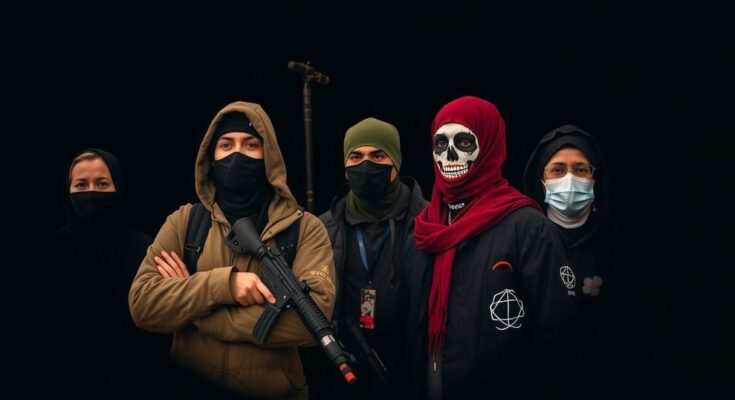Zalina Marshenkulova*, a human rights advocate from Moscow, faces severe restrictions after being included on a list of terrorists and extremists. This designation has frozen her banking accounts and impeded real estate transactions, reflecting the government’s strategy to suppress dissent. Her limited recognition in her hometown and ongoing legal battles reveal the significant risks faced by activists in Russia.
Zalina Marshenkulova*, a human rights activist from Moscow, has recently found herself ensnared in a dire predicament following her designation as a terrorist and extremist. This classification has severely curtailed her rights, notably obstructing her banking activities and real estate dealings, as highlighted by various human rights defenders. Such countermoves reflect a broader strategy to silence dissent and restrict the freedoms of those advocating for human rights in Russia. Despite her efforts in human rights advocacy in Moscow, Marshenkulova* remains relatively unknown in her native Kabardino-Balkaria. Human rights defender Valery Khatazhukov noted that her limited recognition stems from her focus on issues outside the local community. He pointed out that had her work centered on the rights of local residents, she might have captured more attention and support back home. The ramifications of being labeled a terrorist or extremist are severe. Lawyer Yevgeny Smirnov elaborated that this designation effectively locks individuals out of any financial dealings—blocking bank accounts and barring significant withdrawals. Despite the political context, which may cause some countries to overlook such classifications, the potential for international detention looms large for those like Marshenkulova* who find themselves on these lists. Marshenkulova* has taken steps to challenge her situation, filing an appeal against her arrest in absentia for allegedly justifying terrorism. However, her attempts have been thwarted as the Moscow City Court upheld the ruling. The climate of repression combined with the authorities’ tactics underscores the despairing state of human rights advocacy in the region.
Zalina Marshenkulova*’s plight highlights the complexities and dangers faced by human rights defenders in Russia. The classification of individuals as terrorists or extremists is often viewed as a method for the government to suppress dissent and restrict freedoms. This persecution often results in significant social and financial consequences for those affected, which can lead to international repercussions if they travel abroad. The case of Marshenkulova* serves as an illustrative example of how such policies can silence activists and curtail their work.
In conclusion, Zalina Marshenkulova*’s designation as a terrorist and extremist illustrates the harsh realities faced by human rights defenders operating in Russia. The severe limitations on her rights and freedoms underscore a systematic effort to stifle dissenting voices. Her ongoing struggle against the legal ramifications of this classification also sheds light on the broader narrative of repression in the country, where activism can result in dire personal consequences.
Original Source: eng.kavkaz-uzel.eu



